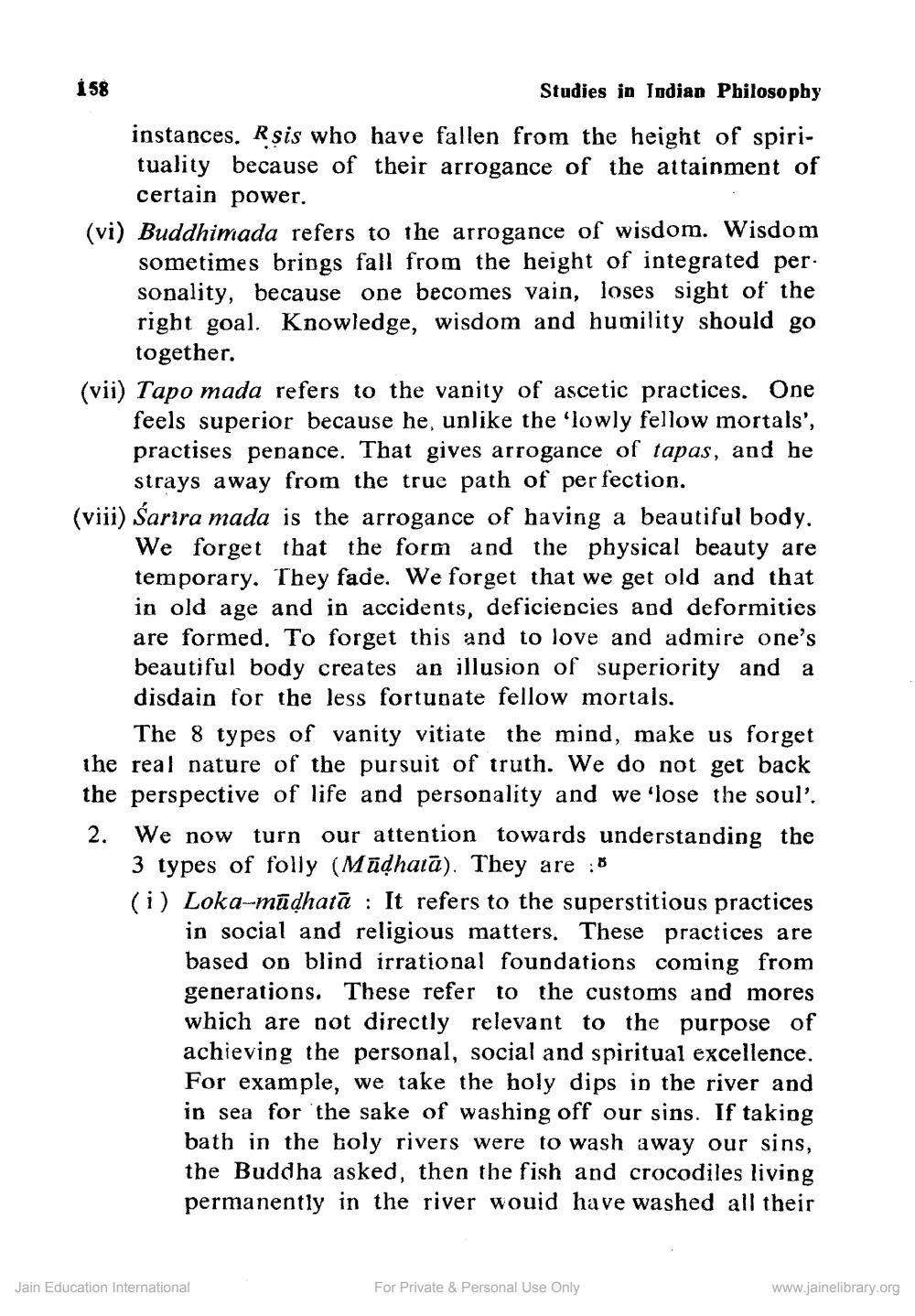________________
158
Studies in Indian Philosophy instances. Rsis who have fallen from the height of spirituality because of their arrogance of the attainment of certain power.
(vi) Buddhimada refers to the arrogance of wisdom. Wisdom sometimes brings fall from the height of integrated personality, because one becomes vain, loses sight of the right goal. Knowledge, wisdom and humility should go together.
(vii) Tapo mada refers to the vanity of ascetic practices. One feels superior because he, unlike the 'lowly fellow mortals', practises penance. That gives arrogance of tapas, and he strays away from the true path of perfection.
(viii) Śarıra mada is the arrogance of having a beautiful body. We forget that the form and the physical beauty are temporary. They fade. We forget that we get old and that in old age and in accidents, deficiencies and deformities are formed. To forget this and to love and admire one's beautiful body creates an illusion of superiority and a disdain for the less fortunate fellow mortals.
The 8 types of vanity vitiate the mind, make us forget the real nature of the pursuit of truth. We do not get back the perspective of life and personality and we 'lose the soul'. We now turn our attention towards understanding the 3 types of folly (Mūḍhatā). They are :
2.
(i) Loka-mūḍhatā: It refers to the superstitious practices in social and religious matters. These practices are based on blind irrational foundations coming from generations. These refer to the customs and mores which are not directly relevant to the purpose of achieving the personal, social and spiritual excellence. For example, we take the holy dips in the river and in sea for the sake of washing off our sins. If taking bath in the holy rivers were to wash away our sins, the Buddha asked, then the fish and crocodiles living permanently in the river wouid have washed all their
Jain Education International
For Private & Personal Use Only
www.jainelibrary.org




